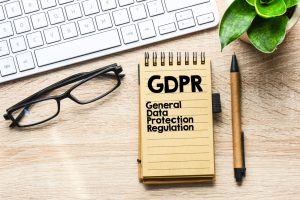During the spring of 2018, the General Data Protection Regulation (GDPR) was set up and passed by the EU government. The concept behind establishing these laws had to do with the management of personal data. Not only did this pertain to acquiring personal data but also how it was processed.
This was deemed to be a vital element for the government to implement while curbing privacy concerns across Europe.
With the technology getting more and more complex with each passing day, the data protection laws have to keep up. This is why the GDPR was set up in the first place. It was about ensuring the technology doesn’t get abused leading to serious privacy violations in different places including the workplace.
Monitoring of Staff Under GDPR
Let’s begin with the core premise of this article.
In general, the GDPR does permit businesses to set up CCTV cameras on their property. However, there are specific regulations in place as to how these cameras are set up and used.
GDPR Laws
 One of the main laws associated with the GDPR laws has to do with telling everyone in the workplace they are being recorded. This can be done in one of many ways including a simple sign that is set up wherever a camera is placed. This lets the individual know a camera is on them when they are in that part of the building.
One of the main laws associated with the GDPR laws has to do with telling everyone in the workplace they are being recorded. This can be done in one of many ways including a simple sign that is set up wherever a camera is placed. This lets the individual know a camera is on them when they are in that part of the building.
You are also required to reach out to the Information Commissioner’s Office to let them know about the CCTV set up.
For the CCTV system to be fully active and compliant, the business needs to maintain full control of the cameras with prioritized access. The footage cannot be used for any private means and the only time these images/visuals can be made available is if the individual themselves requests access to them. This claim has to be accepted and completed within 40 days.
It is also expected for the CCTV system to match with the reason given to ICO. This means if the goal is to keep staff members safe from potential safety concerns on-site, this doesn’t mean the cameras can be used for other reasons including snooping on conversations between employees.
There are additional regulations that are still in place including not being able to set up cameras in the bathroom and/or change room. These are restricted areas where 100% privacy is expected at all times.
The only time footage can be used from cameras around the property for additional purposes is to catch criminal activity that takes place in that part of the building. This will vary for each workplace but it is acceptable to set up covert filming for this specific purpose.
The legality of CCTV Cameras
1. Set Up a Complete Policy
To move forward with something like this, the organization should take the time to set up a clear-cut policy highlighting how the cameras are being used on the premises.
This should include all of the reasons associated with the cameras and how they are only going to be accessible by a select few.
It is also important for signs to be set up around the premises at all times where the cameras are. This is the only way to make sure everyone is happy with the setup and is aware of it too.
2. Speak to the Employees
It is also recommended to take the time to reach out to each employee and let them know about the cameras. This can include a meeting alerting them about the placement of these cameras and answering all relevant questions associated with the new security measures.
3. Set Up A Secure System
The data should be fully secure at all times with multiple safety measures in place. Accessibility for the system should be done based on the established laws including avoiding holding data past the one-month mark.
Final Thoughts
CCTV cameras are an essential requirement in the workplace. They help keep the staff safe, protect all of the organization’s assets, and ensure relevant evidence is made available if a crime takes place on the premises. This is essential for your peace of mind.
With the GDPR that is in place, it has become important to know what is permitted and what is not. Having this information in hand will ensure you are not compromising anyone’s rights in the workplace.
